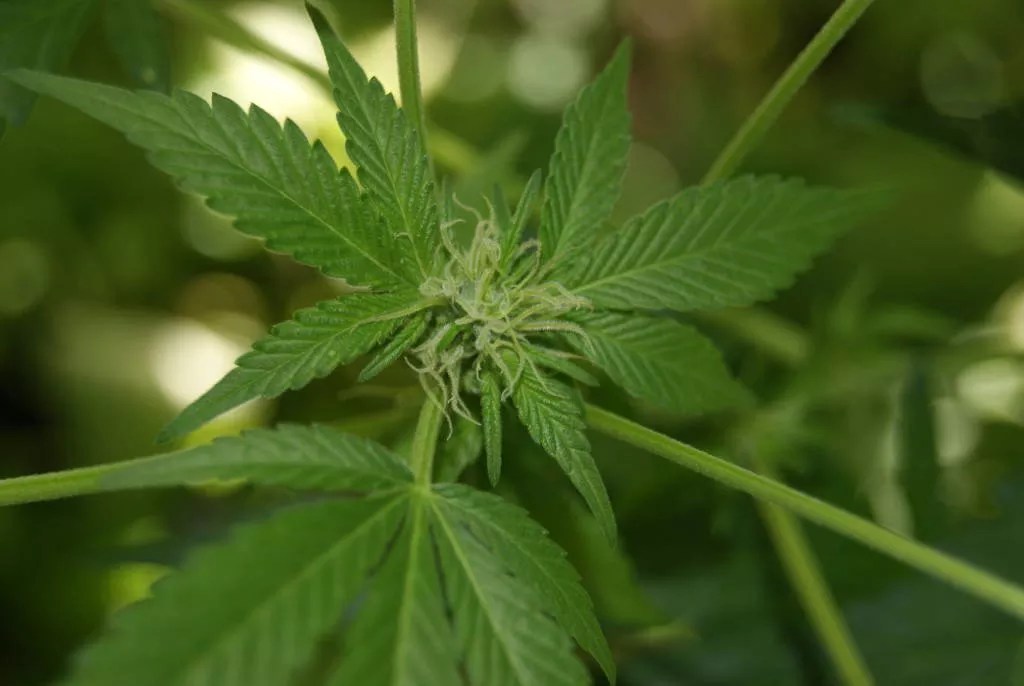
Danny S., CC BY-SA 4.0, via Wikimedia Commons

Audio By Carbonatix
The state’s final decision on a pending THC ban has been stalled by the national headline-making quorum break staged by Texas Democrats, who make up about a third of the House. The protest has spurred a witch hunt conducted by the state’s GOP leaders as the 89th Legislative Special Session ceases without the necessary voting population within the House. The bill, Senate Bill 5, which would ban all consumable hemp-derived THC products, passed the Senate in a 21-8 vote, but was not scheduled for a House vote before the Democrats fled the state.
A prior version of the bill was passed in the regular session, but Gov. Greg Abbott vetoed it, citing legal weaknesses in its authoring that allowed for easy litigation. The governor pointed to a similar bill that was signed into law by Arkansas Gov. Sarah Huckabee Sanders in 2023. Within five weeks, a U.S. District Judge ordered an injunction halting the law and allowing retailers to continue selling the products.
“The Arkansas law was challenged, and a federal court swiftly halted it in its entirety, finding it was likely preempted by federal statutes and that its criminal provisions were likely unconstitutionally vague… The result in Arkansas? Their law has sat dormant, meaningless, having no effect for nearly two years while further legal proceedings play out. That result must be avoided in Texas,” Abbott wrote in his initial veto.
Anticipating the passing of a blanket ban, a group of Texas hemp industry stakeholders was already preparing for litigation before the governor’s veto.
“There’s a huge coalition of people that I’ve been lucky to speak [with for] nearly a year at this point,” North Texas hemp shop owner Hayden Meek said to the Observer in May. “We’ve all been talking and collaborating. It’s a huge coalition that represents probably at least 80% of the hemp industry in Texas.”
But between Abbott vetoing the THC bill and the special session beginning, a higher court reversed the district judge’s injunction in Arkansas, allowing the state to enforce its original ban.
“The text of the 2018 Farm Bill shows only that Congress wanted to facilitate state legalization of hemp, if a state wants to. Congress allows states to legalize hemp by removing the biggest hurdle-federal criminalization,” 8th Circuit Judge Jonathan Allen Kobes wrote in the June 24 ruling.
According to reports from KATV in Little Rock, on July 2, the Arkansas Department of Finance and Administration sent notice to alcohol, tobacco and medical marijuana permit holders, warning that the continued sale of THC is illegal, and to remove the products from shelves.
“Today’s ruling isn’t just a win for Arkansas, it’s a win for common sense and the rule of law,” Arkansas Attorney General Tim Griffin wrote on social media when the law was upheld. “If you are selling these products, you are now doing it in violation of the law.”
Arkansas was one of the first states to ban hemp-derived THC products, but they probably won’t be the last. Though our lawmakers are still out of office, when they return, the House will take the issue back up. Further east, in May, Alabama Gov. Kay Ivey signed a bill that banned all smokable hemp products and put the Alabama Alcoholic Beverage Control Board in charge of licensing and permitting for hemp product retailers and manufacturers.
The Alabama bill is less expansive than Arkansas’ ban and the proposed ban pending a House vote in Texas, but critics have said the law is poorly drafted.
‘[Here’s] where the law’s confusion reaches a fever pitch: it takes effect on July 1, 2025, but the licensing, testing and enforcement provisions don’t kick in until January 1, 2026,” reads an op-ed from the editor-in-chief of the Alabama Political Reporter, Bill Britt. “The result? A six-month no-man’s-land with no clear rules for businesses, law enforcement or the public.”
A coalition of Alabama hemp industry stakeholders requested a restraining order to prevent the law from taking effect, but the request was denied. A separate lawsuit has been filed against Ivey and Alabama Attorney General Steve Marshall, alleging the ban would “gut an entire industry overnight.”
More Southern states are beginning to restrict hemp-derived THC products. Georgia and Kentucky have also successfully passed new regulations on their respective hemp industries. But the South is late to clamp down on intoxicating synthetic products.
Three states, California, Oregon and Hawaii, have already completely banned hemp-derived THC products, though it is important to note that all of those states have fully legalized recreational marijuana. Other states, like Washington, New York and Colorado, which also have legalized recreational marijuana, have heavy restrictions on the products.